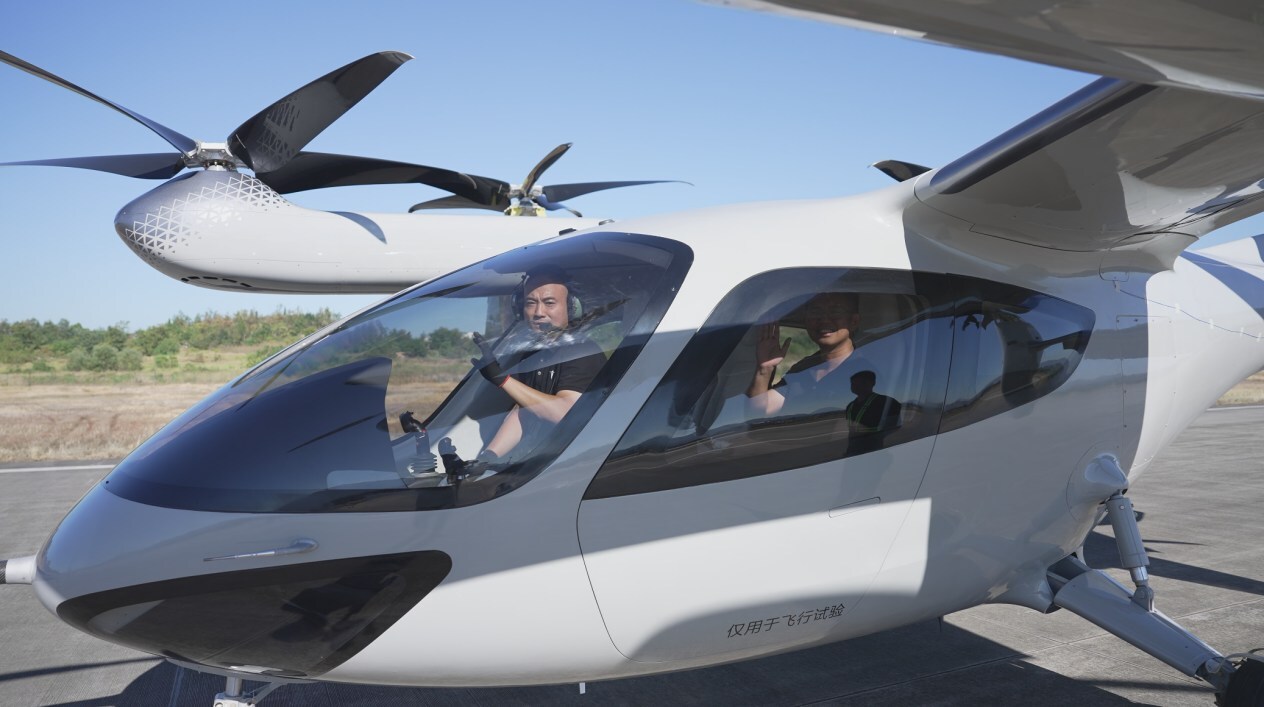In a major achievement for the Japanese electric vertical take-off and landing (eVTOL) industry, Japan-based SkyDrive Inc. announced on February 10, 2025, that the Japan Civil Aviation Bureau (JCAB) had issued a G-1 certification basis for its flagship eVTOL aircraft. This pivotal achievement represents a crucial step in SkyDrive's journey toward full aircraft certification and commercial operations, positioning the company at the forefront of Japan's emerging urban air mobility sector.
The JCAB's decision follows extensive negotiations between the regulatory body and SkyDrive regarding the specific airworthiness and performance criteria required for type certification of the 'SKYDRIVE' – the company's lightweight, three-seater eVTOL aircraft. This latest agreement builds upon an earlier understanding reached in March 2022, when both parties agreed to use the JCAB Airworthiness Inspection Manual (AIM) Part II (Revision 61) as the foundation for certifying SkyDrive's eVTOLs.
AIM Part II establishes airworthiness criteria for fixed-wing aircraft that carry up to 19 passengers with a maximum take-off weight of 8,618 kg (19,000 lb) or less. The latest version, Revision 61, offers aircraft manufacturers greater flexibility in selecting methods to demonstrate aircraft safety, allowing them to choose approaches that best match their specific aircraft characteristics.
Arnaud Coville, SkyDrive's Chief Development Officer, expressed the significance of this milestone: "We have reached this milestone through a series of respectful and collaborative discussions with the JCAB. The issuance of this certification basis represents the culmination of substantial efforts invested over several months."
The SKYDRIVE eVTOL Aircraft
SkyDrive released the first official images of its 'SKYDRIVE' aircraft and the certification announcement. It is undergoing flight tests in preparation for its public unveiling at the World Expo 2025 in Osaka.
Technical Specifications:
- Aircraft type: eVTOL passenger multicopter production model
- Capacity: 1 pilot with 2 passengers and luggage
- Maximum cruise speed: 100 km/h (62 mph)
- Range: 15-40 km (9-25 miles)
- Maximum take-off weight: Approximately 1,400 kg (3,086 lb)
- Propulsion: 12 propellers powered by 12 electric motors
- Dimensions: 13 × 13 × 3 meters (43 × 43 × 10 feet)
- Construction: Carbon fiber composite and aluminum fuselage
The aircraft features panoramic wrap-around windows providing spectacular views for passengers, a single vertical stabilizer, and fixed skid landing gear. Safety is enhanced through Distributed Electric Propulsion (DEP), which provides redundancy – if one or more propellers or motors fail, the remaining functional components can safely land the aircraft.

Certification Process: JCAB vs. FAA
The path to aircraft certification for new vehicle categories like eVTOLs is notably complex, especially given that existing regulations are still evolving and no standardized certification framework exists. SkyDrive is pursuing a dual-track certification strategy involving Japanese and American aviation authorities.
Following the G-1 certification basis issuance, SkyDrive and the JCAB continue discussions to finalize the future certification plan, including testing schedules and procedures. Once this plan is complete, the company will begin formal ground and flight testing of the aircraft to gather the necessary data for full-type certification.
Concurrently, SkyDrive is working with the Federal Aviation Administration (FAA) in the United States to validate a parallel certification process for the American market. This strategic approach enables the company to align certification efforts across both regulatory frameworks, potentially streamlining the path toward standardized global operations.
"We are also thrilled with the recent progress achieved in our validation project with the FAA," noted Coville. "Our prototype aircraft, which is undergoing extensive flight tests, continues accumulating valuable data as we progress toward the upcoming demonstration flights at the Osaka Expo."
The company aims to achieve JCAB certification in 2026, with plans to perform demonstration flights at the World Expo 2025 in Osaka. This major international event will showcase the aircraft's capabilities to the public.
Market Context and the Certification Race
SkyDrive's progress comes amid explosive growth projections for the global eVTOL market. According to market analysis, the eVTOL aircraft sector is expected to expand from USD 1.7 billion in 2023 to approximately USD 39.0 billion by 2033, representing a compound annual growth rate of 36.8%.
Global Competition Landscape:
Within this rapidly evolving landscape, SkyDrive faces competition from several established and emerging players globally, including:
- Lilium: Focused on regional air mobility through electric vertical take-off and landing jets designed for minimal emissions
- Zuri: Developing VTOL aircraft equipped with hybrid technologies
- TCab Tech: Working on eVTOL vehicles for the urban air mobility sector
- Other key industry players: Airbus SE, EHang Holdings Ltd., Beta Technologies, and Embraer SA
Japan's Certification Battlefield:
While the global race accelerates, Japan has emerged as a key battleground for eVTOL manufacturers, with several international players actively seeking type certification from the Japan Civil Aviation Bureau (JCAB):
Volocopter, the German eVTOL developer, received JCAB acceptance for concurrent type certification with the European Union Aviation Safety Authority (EASA) in February 2023. The company is targeting EASA certification in 2024 and plans to operate its two-seat VoloCity aircraft at the 2025 Expo Osaka Kansai, backed by investment from Japanese conglomerate Sumitomo Corporation.
Joby Aviation from California applied for JCAB validation of its FAA-type certification in late 2022, with its application believed to be among the first of its kind. Joby's five-seat piloted eVTOL aims to connect congested Japanese urban centers, leveraging its strategic partnership with Toyota, which has invested nearly $400 million, and a collaboration with ANA Holdings, Japan's largest airline.
Vertical Aerospace from the UK submitted its application for type certification of its VX4 eVTOL to Japan's Ministry of Land, Infrastructure, and Transport in March 2023. The company has partnered with Japanese firm Marubeni, which has pre-ordered up to 200 aircraft and made pre-delivery payments for 25 units.
SkyDrive's Strategic Position:
As one of the first applicants for type certification in Japan and the only domestic manufacturer among the frontrunners, SkyDrive holds a unique position in this competitive landscape. The recent G-1 certification basis milestone represents significant progress in SkyDrive's certification journey, giving it an advantage in navigating Japan's regulatory environment.
While international competitors bring substantial funding and global partnerships to the table, SkyDrive's status as a homegrown champion aligns with Japan's industrial policy priorities. As all major players target demonstration flights at the 2025 Osaka Expo, this event will likely be a crucial showcase for comparing technological readiness and operational capabilities across these competing eVTOL platforms.
The race for certification in Japan highlights the technical challenges of bringing these revolutionary aircraft to market and the strategic importance of establishing early regulatory and commercial partnerships in key global markets.
Production Strategy and Commercial Momentum
SkyDrive has established a clear roadmap for bringing its aircraft to market. Following certification in 2025, the company expects to begin serial production in 2026 and sell the aircraft in Japan and international markets.
SkyDrive partnered with Suzuki Motor Corporation in June 2023 to jointly produce eVTOL aircraft at a Suzuki-owned manufacturing plant to support these ambitions. On March 6, 2024, the company launched production at this facility in Iwata City, Shizuoka, with an annual capacity of 100 aircraft. This milestone was marked by a ceremonial first riveting attended by leadership from both companies, including Toshihiro Suzuki, Representative Director and President of Suzuki, and Tomohiro Fukuzawa, CEO of SkyDrive.
The manufacturing capability aligns perfectly with SkyDrive's robust order book, which now exceeds 100 units across multiple continents. Significant pre-orders include AeroGulf Services (Dubai) with up to 50 units, JetSetGo Aviation Services (India) with 50 units, Solyu Company (Korea) with up to 50 aircraft, Pacific Group (Vietnam) with 10 firm orders and options for 90 more, and SAI Flight Services (South Carolina, USA) with 10 pre-orders.
In addition to these substantial pre-order agreements, SkyDrive continues establishing strategic partnerships for future operations. In March 2024, they announced that Bravo Air, a US-based private air charter company in Augusta, Georgia, intends to purchase up to five SD-05 SkyDrive eVTOL aircraft. The company has also begun discussions with East Japan Railway Company to explore eVTOL services and partnered with JR Kyushu and the Oita prefectural government to develop tourist-focused air mobility services in the region by 2028.

Significance for the Industry
The G-1 certification basis issuance marks a significant advancement for SkyDrive and the entire eVTOL industry as regulatory frameworks mature. As one of the first companies to fly a crewed eVTOL in Japan (achieving this milestone in 2019), SkyDrive's progress with certification helps establish precedents that may benefit other manufacturers.
The company's dual-certification approach with Japanese and American aviation authorities could help harmonize international standards for this emerging aircraft category, making it easier for manufacturers to access the global market.
With the eVTOL market poised for dramatic growth over the coming decade, SkyDrive's certification progress represents an essential step toward the future of urban air mobility, where flying in electric aircraft could become a regular part of city life.




